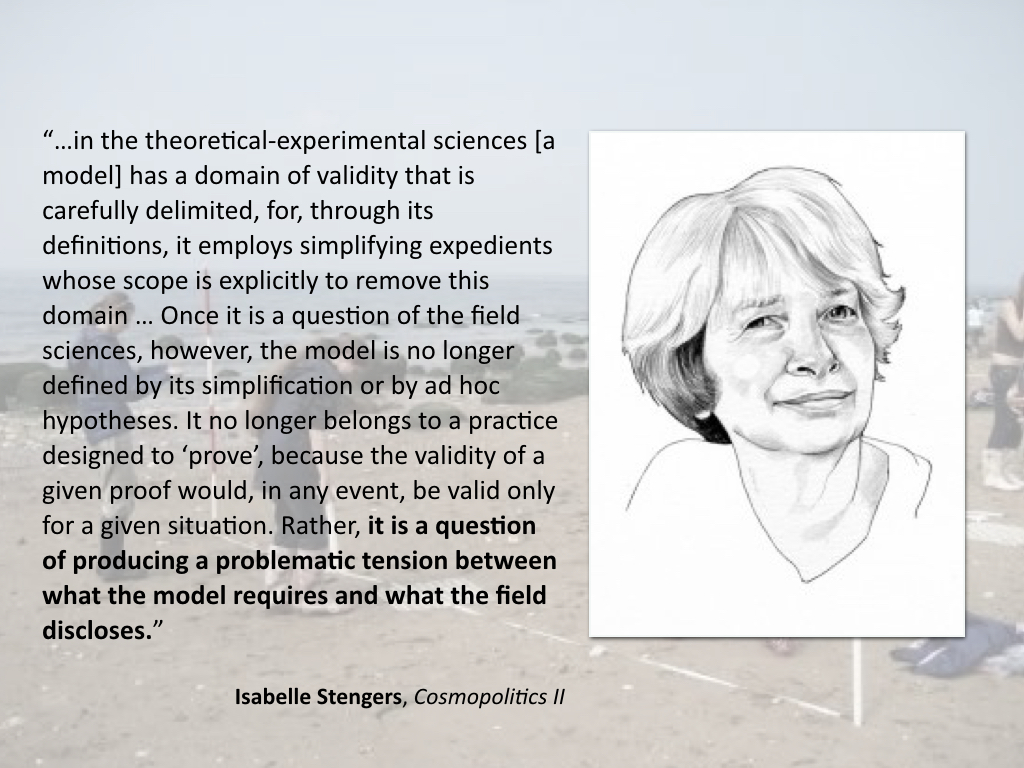|
I've currently got fieldwork on the brain. I'm in the process of writing a 3,000-word reflection for my PGCAP course on a field class that I was a part of before Christmas. I'm also looking forward to hosting a group of teachers next week at the East London Geographical Association for a half-day session on conducting urban fieldwork (with my colleagues Kate Amis and Alastair Owens). In that session, we will discuss fieldwork design and also reflect a little on the position of fieldwork in the new A-level specifications. How, for instance, can teachers do cultural geography research in a way that is rigorous, relevant and not at all fuzzy?
It was great then to sit down to read some more Isabel Stengers last night. I've now moved on to look at her multi-volume work on Cosmopolitics. Contained in the second volume is a wonderful section comparing the experimental and field sciences. Andrew Barry in his recent piece on "the geographical canon" in the Journal of Historical Geography cites this passage and notes that "[Stengers] seeks to give a new sense of value to those ecologies of practice that address the contingency, path-dependency and complexity of the world outside of the purified domain of the laboratory" (2015, 90). This is great to hear as I place particular value on field research as a tool to disrupt our established regimes of practice. However, it is also a challenge for our teachers who are heading out into the field with their classes. There is the ever present danger that the results in the field won't really map onto the conceptual/modelling work already done in the classroom. While physical geographers can talk about error bars and standard deviation, it seems a little trickier to square contingency with cultural geography. We'll be unpacking how to deal with the unexpected in human geography fieldwork next week. I'm going to include a little Stengers in my presentation to the teachers, and I'm going to leave them with this challenge taken from Cosmopolitics (see the slide below): how do we inhabit the problematic tensions between what our textbook models require and what the field chooses to disclose? Answers on a postcard.
0 Comments
Leave a Reply. |
Archives
April 2023
Categories |

 RSS Feed
RSS Feed